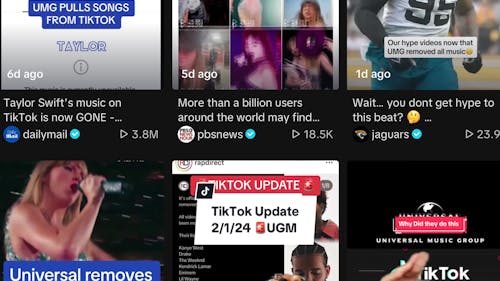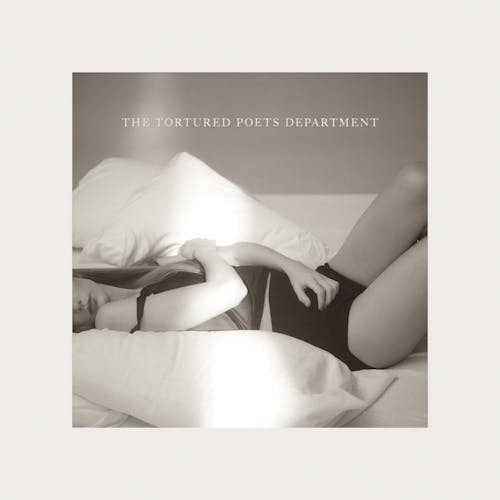Universal Music Group changes its tune on TikTok

In a recent move that has sent shockwaves through the music and social media spheres, Universal Music Group (UMG), one of the world's largest music companies, has decided to remove its artists' songs from TikTok.
This decision comes after failed negotiations between UMG and TikTok, leaving users greeted with a banner saying "sound removed due to copyright restrictions" when they try to access UMG music on the platform.
This decision by UMG has sparked a range of reactions from both artists and TikTok users alike. In an interview with Variety, singer-songwriter Gracie Abrams expressed her hopes for a swift resolution, stating, "I hope they come to an agreement soon so that fans of music can have the music that they want on the platform to make the content that they want."
Abrams highlighted the creative potential of TikTok and emphasized the importance of music in fostering user-generated content.
But not all artists share the same optimism. In a Rolling Stone interview, singer-songwriter Conan Gray voiced his concerns, joking, "Yeah, I mean, my career is over for sure. I am never going to have a hit song ever again at this rate."
Gray's comment underscores the significant role platforms like TikTok play in shaping artists' careers and allowing them to reach new audiences.
UMG, in an open letter to the artist and songwriter community, outlined its reasons for taking this drastic step. The letter cites ongoing negotiations with TikTok regarding fair compensation for artists and songwriters, concerns about the proliferation of music generated by artificial intelligence (AI) on the platform and issues related to online safety and content moderation.
Central to UMG's decision is the issue of artist compensation. The letter highlights TikTok's proposed payment rates, which UMG considers significantly lower than those of other major social platforms.
Despite TikTok's exponential growth and increasing reliance on music-based content, UMG asserts that the platform's compensation model inadequately values the contributions of artists and songwriters. This discrepancy in compensation reflects broader debates within the music industry regarding fair remuneration for digital content.
Furthermore, UMG raises concerns about TikTok's handling of AI-generated music and its potential impact on artists. By allowing the platform to be flooded with AI-generated recordings and promoting AI music creation tools, TikTok risks diluting the royalty pool for human artists. UMG condemns this practice as comparable to sponsoring artist replacement by AI, undermining the creative work of human musicians.
In addition to compensation and AI-generated content, UMG criticizes TikTok's approach to content moderation and online safety. The letter accuses TikTok of insufficiently addressing issues such as copyright infringement, hate speech, bigotry and harassment on its platform.
UMG asserts that TikTok's response to these concerns has been indifferent at best and intimidating at worst, citing instances of selective music removal and attempted coercion during negotiations.
As a result of these ongoing disputes, TikTok users will no longer have access to UMG's extensive catalog of music, including songs by popular artists such as Drake and Taylor Swift.
This development marks a significant loss for TikTok, given the platform's emphasis on music-driven content and its large user base. Without access to UMG's repertoire, users may find their creative options limited, potentially impacting engagement and user retention.
The fallout from UMG's decision extends beyond TikTok, affecting artists, fans and the broader music industry. Artists stand to lose exposure and revenue from TikTok's vast audience, while fans may miss out on the opportunity to engage with their favorite songs and artists on the platform.
Moreover, the standoff between UMG and TikTok highlights underlying tensions within the digital music landscape, particularly concerning artist compensation, content moderation and the role of AI.
UMG's decision to remove its music from TikTok reflects broader concerns about fairness, compensation and artistic integrity in the digital age. While the move may be justified from UMG's perspective, its impact on TikTok and its users underscores the complexities of navigating the evolving relationship between music, technology and commerce in the 21st century.



